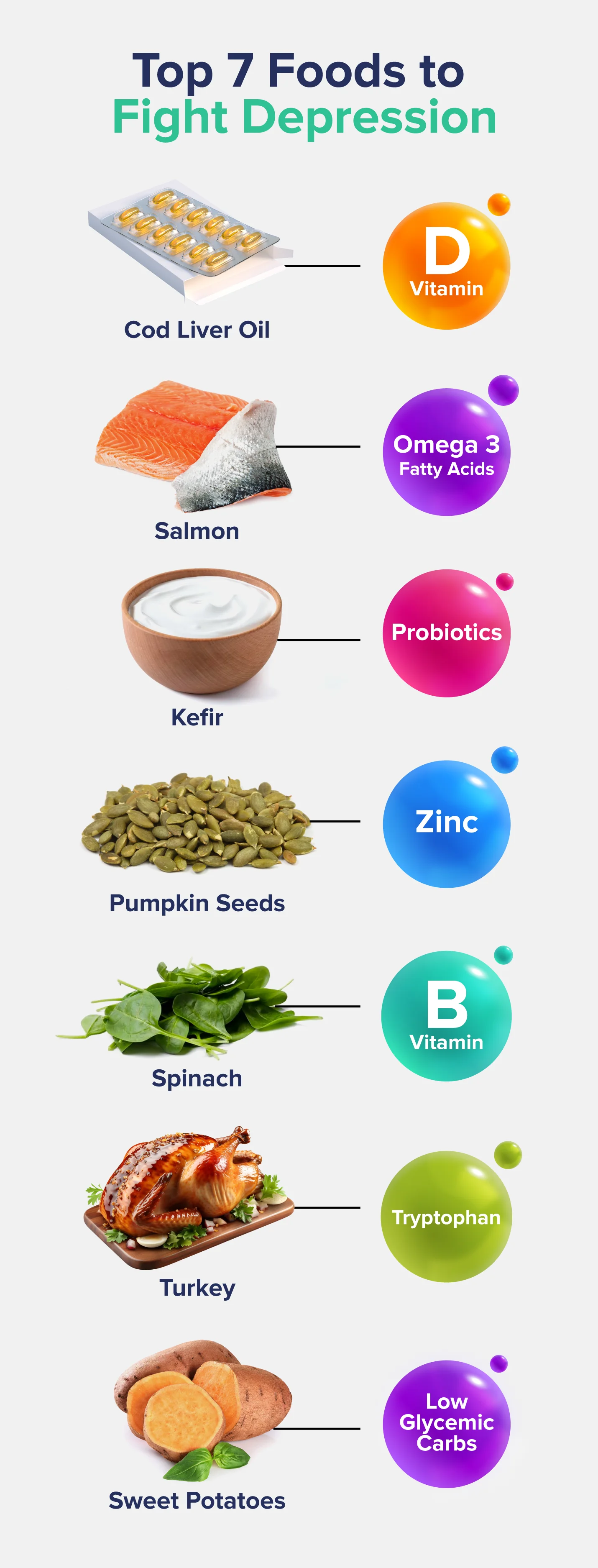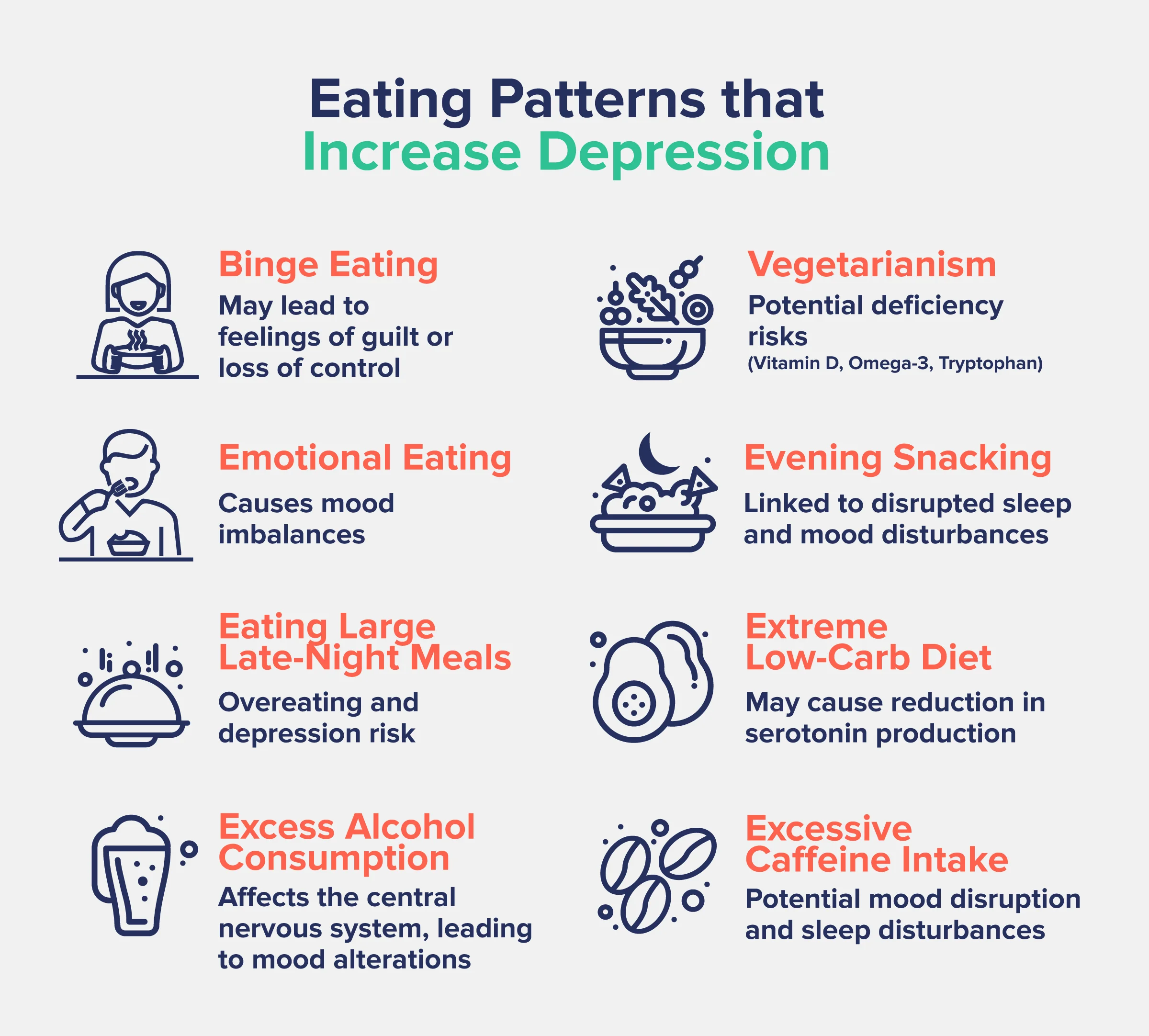Try our favorite, clean protein powder: See our top pick →
Try our favorite, clean protein powder: See our top pick →
This post contains links through which we may earn a small commission should you make a purchase from a brand. This in no way affects our ability to objectively critique the products and brands we review.
Evidence Based Research To fulfill our commitment to bringing our audience accurate and insightful content, our expert writers and medical reviewers rely on carefully curated research.
Read Our Editorial Policy
As the days get shorter and the sun disappears for days or weeks at a time, many people find that their mood plummets along with the temperatures outside.
But the so-called “winter blues” can go past simply feeling blah and uninspired into something more serious—a form of depression called Seasonal Affective Disorder, or SAD.
Seasonal affective disorder is a real condition that affects about 6% of American adults each year, with up to 15% experiencing milder versions.
While depression of any kind should be diagnosed and treated by a qualified healthcare professional, there are some dietary and lifestyle changes you can make that may help right away.
Several foods and nutrients are thought to benefit people with SAD, ranging from vitamin D to omega-3s to fiber-rich carbohydrates—let’s take a closer look.

It’s thought that one reason SAD develops is because of the reduced amount of sunlight in the winter months—which means we absorb less vitamin D through our skin.
Research involving over 31,000 people found that those with the lowest blood vitamin D levels had the highest rates of depression.
Eating vitamin D-rich foods may benefit SAD. The best food sources of vitamin D include egg yolks, fatty fish (like salmon, tuna, sardines, and mackerel), and fortified milk.
Getting as much sunshine as possible can also boost your blood vitamin D levels—and if the sun is not shining where you live, light therapy lamps can help bridge the gap. Supplementing with vitamin D may also be beneficial for seasonal depression. However, not all studies have shown a benefit from vitamin D supplementation.
The same types of fatty fish (sardines, tuna, mackerel, etc.) rich in vitamin D are also loaded with the omega-3 fatty acids EPA and DHA—beneficial fats for brain health and mood.
While some plant foods contain omega-3s (like walnuts, flax, and hemp), they primarily contain ALA, a type of omega-3 that has limited conversion into EPA and DHA in the body.
Omega-3 fats may benefit mood because they help to maintain serotonin and dopamine levels in the brain.
Seasonal affective disorder (and depression in general) is less prevalent in people who consume higher amounts of omega-3s.
If you’re not a fan of fish, supplementing with high-quality fish oil supplements can still do the trick. Although this study didn’t look specifically at SAD, a meta-analysis of 26 studies found that people who took fish oil supplements with 60% EPA or more had clinical improvements with depression.
Recent years have seen an explosion of research on the gut-brain axis—the bidirectional relationship between our mind and mood.
Major depressive disorder is associated with alterations of the gut microbiome, so increasing the health and diversity of our gut microbes with fermented foods may benefit symptoms of SAD.
Fermented foods are rich in probiotics and include sauerkraut, refrigerated pickles, kimchi, yogurt, kefir, kombucha, and other fermented or pickled vegetables.
Probiotic supplements may also benefit symptoms of depression, although results are mixed.
One meta-analysis of 34 clinical trials found that probiotic supplementation led to small but significant benefits for depression.Not all probiotic supplements are created equal—read more in these articles about our top probiotic picks for men and women.
The mineral zinc is involved in several aspects of brain health, including behavior, learning, and mental functions.
Research shows that combining supplemental zinc with SSRI medications improves symptoms of depression more than SSRIs alone.
Adding zinc-rich foods to your diet may benefit seasonal affective disorder, including:
Several vitamins in the B complex family are linked to mood and cognitive function, especially B6, B9 (folate), and B12.
A deficiency or inadequacy in any of these vitamins may increase the risk of depression, including SAD.
Vitamin B6-rich foods include dairy, tuna, salmon, beef, and potatoes, while leafy green vegetables, fruits, nuts, and grains contain folate.
Vitamin B12 is only found naturally in animal products, with the best sources being red meat, liver, clams, oysters, and fish. Research also suggests that supplementation with folate and vitamin B12 could be used to improve depressive symptoms.
Tryptophan is an essential amino acid and precursor to serotonin—our feel-good, happy hormone.
As we can’t make tryptophan in the body, we must regularly consume it.
While you may know tryptophan best as the compound in turkey that supposedly makes you sleepy on Thanksgiving, it’s found in the highest amounts in cheddar and Parmesan cheeses, lobster, octopus, crab, oats, soybeans, and wheat germ.
One small study found that people who ate a high-tryptophan diet had better mood scores, fewer depressive symptoms, and decreased anxiety compared to when they ate less tryptophan. However, larger and more long-term studies have not consistently shown an association between increased tryptophan consumption and lower depression.
Although keto dieting is all the rage, people prone to SAD or other forms of depression may want to keep the carbs in their kitchen.
This is because carbohydrates are essential for naturally stimulating the production of serotonin.
Low serotonin production is linked to increased rates of mood disorders, including SAD.
However, we don’t want to eat high-sugar, low-fiber, refined carbohydrates—we’re looking for fiber-rich, complex, low-glycemic carbs that won’t spike blood sugar excessively, as blood sugar imbalances also cause dysregulated mood. Eating carbohydrates like sweet potatoes, cooked and cooled potatoes (which lowers their glycemic index significantly), lentils, beans, vegetables, most fruit, quinoa, buckwheat, and steel-cut oats may support a healthy mood.

In a systematic review of 11 studies, researchers found certain eating and drinking patterns to increase the prevalence or severity of seasonal affective disorder, including:
Several nutrients are thought to be associated with seasonal affective disorder and may help to improve its symptoms:
• Vitamin D
• Omega-3 fats
• B vitamins (especially B6, B9, and B12)
• Zinc
Foods rich in omega-3s, B vitamins, zinc, vitamin D, tryptophan, and low-glycemic carbs are thought to support healthy moods.
Some examples include:
• Quinoa
• Steel-cut oats
• Sweet potatoes
• Leafy green vegetables
• Cooked and cooled potatoes
• Beans and legumes
• Nuts
• Shellfish
• Fatty fish
• Red meat
• Eggs
Subscribe now and never miss anything about the topics important to you and your health.